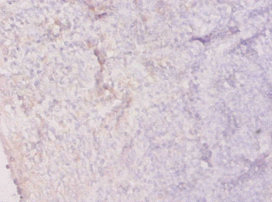HPRT antibody
GTX33248
ApplicationsImmunoFluorescence, Western Blot, ImmunoCytoChemistry
Product group Antibodies
ReactivityHuman, Mouse
TargetHPRT1
Overview
- SupplierGeneTex
- Product NameHPRT antibody
- Delivery Days Customer9
- Application Supplier NoteWB: 1:500 - 1:2000. ICC/IF: 1:10 - 1:100. *Optimal dilutions/concentrations should be determined by the researcher.Not tested in other applications.
- ApplicationsImmunoFluorescence, Western Blot, ImmunoCytoChemistry
- CertificationResearch Use Only
- ClonalityPolyclonal
- ConjugateUnconjugated
- Gene ID3251
- Target nameHPRT1
- Target descriptionhypoxanthine phosphoribosyltransferase 1
- Target synonymsHGPRT, HPRT, hypoxanthine-guanine phosphoribosyltransferase, HGPRTase, hypoxanthine guanine phosphoribosyl transferase, hypoxanthine-guanine phosphoribosyltransferase 1, testicular tissue protein Li 89
- HostRabbit
- IsotypeIgG
- Protein IDP00492
- Protein NameHypoxanthine-guanine phosphoribosyltransferase
- Scientific DescriptionThe protein encoded by this gene is a transferase, which catalyzes conversion of hypoxanthine to inosine monophosphate and guanine to guanosine monophosphate via transfer of the 5-phosphoribosyl group from 5-phosphoribosyl 1-pyrophosphate. This enzyme plays a central role in the generation of purine nucleotides through the purine salvage pathway. Mutations in this gene result in Lesch-Nyhan syndrome or gout.[provided by RefSeq, Jun 2009]
- ReactivityHuman, Mouse
- Storage Instruction-20°C or -80°C,2°C to 8°C
- UNSPSC12352203



![WB analysis of truncated HPRT recombinant protein using GTX83262 HPRT antibody [1F8D11].](https://www.genetex.com/upload/website/prouct_img/normal/GTX83262/GTX83262_20170912_WB_w_23061322_756.webp)

